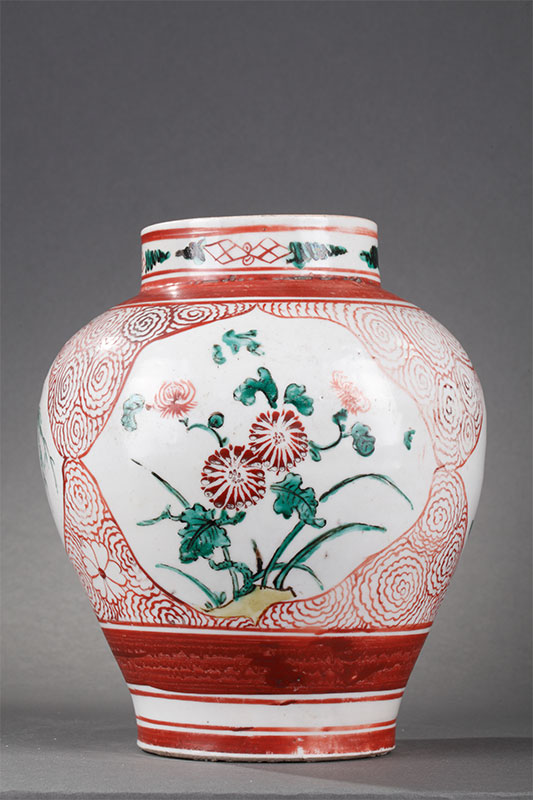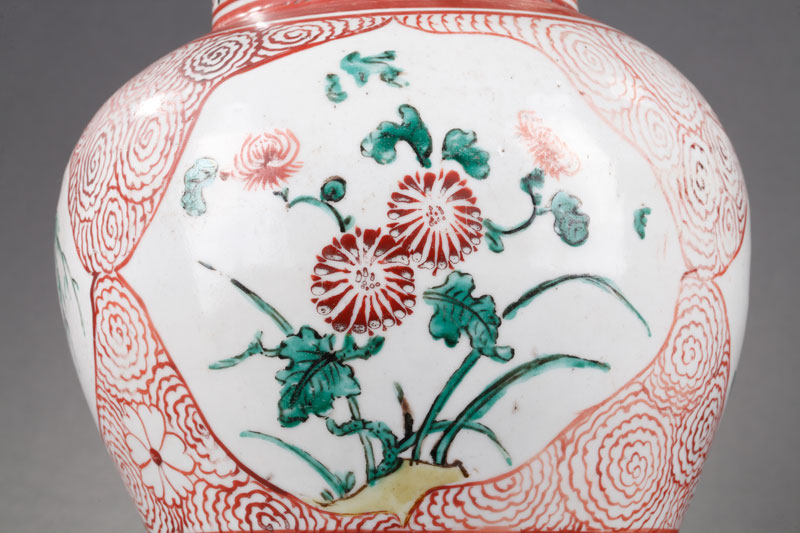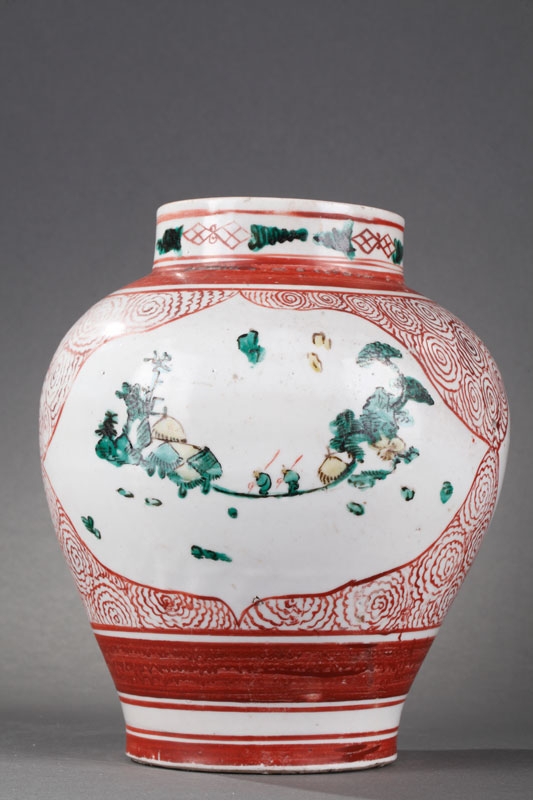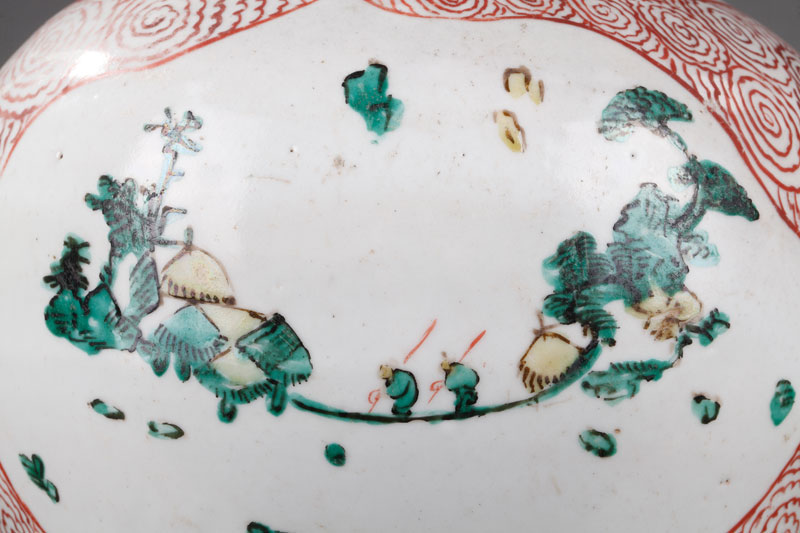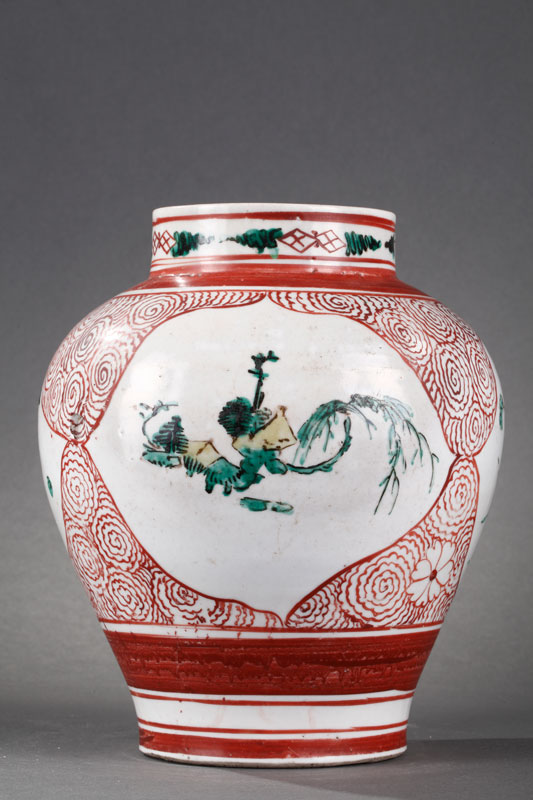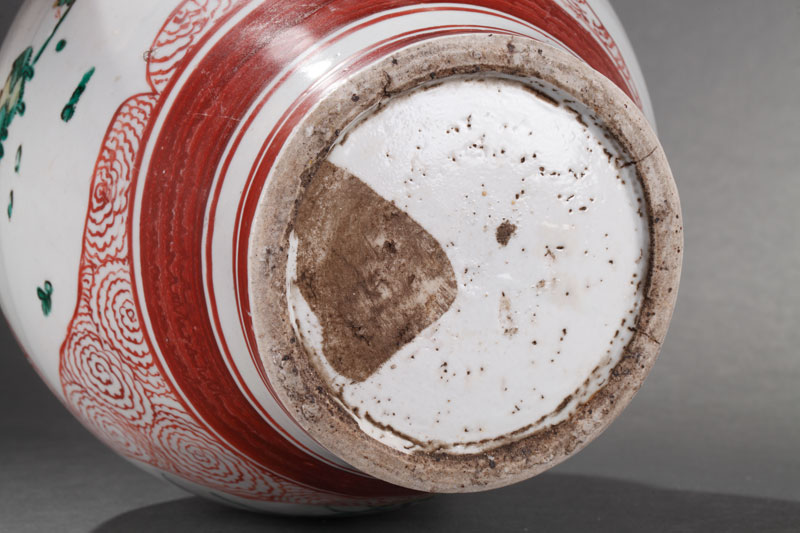A rare Ko-Imari porcelain vase
- Porcelain with overglaze enamels
Description
This vase is baluster shaped, with a generous body slightly tapered towards the circular neck. The decoration is executed with bright red, green and yellow enamels, with some outlines in eggplant black enamel. Four panels are left blank on a dense background of iron-red scroll work. Each is decorated with chrysanthemums or green landscapes depicting pines, weeping willows, thatched cottages and small characters with calligraphic silhouettes. The foot of the vase is decorated with circumferential red lines. The neck is accentuated with a frieze of double lozenges containing cross motifs and framed by green undulations. The base is glazed.
This piece is a rare example of early Japanese glazed porcelain produced in the Arita kilns in present-day Saga Prefecture, in the south of the archipelago. Indeed, large deposits of kaolin were discovered in this region. Japanese ceramists tried to imitate Chinese porcelains of the Jiajing reign (1522-1566), especially those in the wucai (“five colors”) style. The palette is characterized by light green, yellow and eggplant black enamels combined with a vibrant red used for geometric patterns. The motifs are fresh and natural, flowers and landscapes evoking Chinese and Japanese painting. In Northeast Asia, chrysanthemums are a symbol of autumn, persistence and longevity.
This style is called Ko-Imari, or ancient Imari, named after the port that shipped the Arita porcelain to Europe and Asia. The predominance of red prefigures the kakiemon style, which has been extensively imitated by European ceramic factories such as Meissen, Saint-Cloud and Chantilly.
A rare Ko-Imari porcelain vase
- Porcelain with overglaze enamels
Discover more Porcelain
Return to the collection

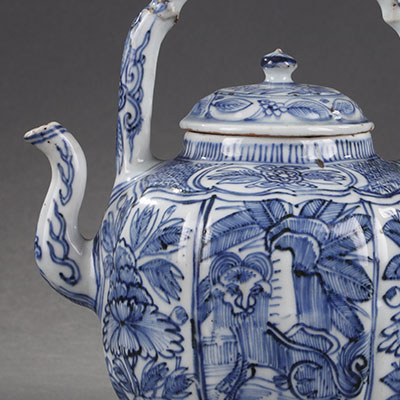
A kraak porcelaine wine pot decorated with a Buddhist lion
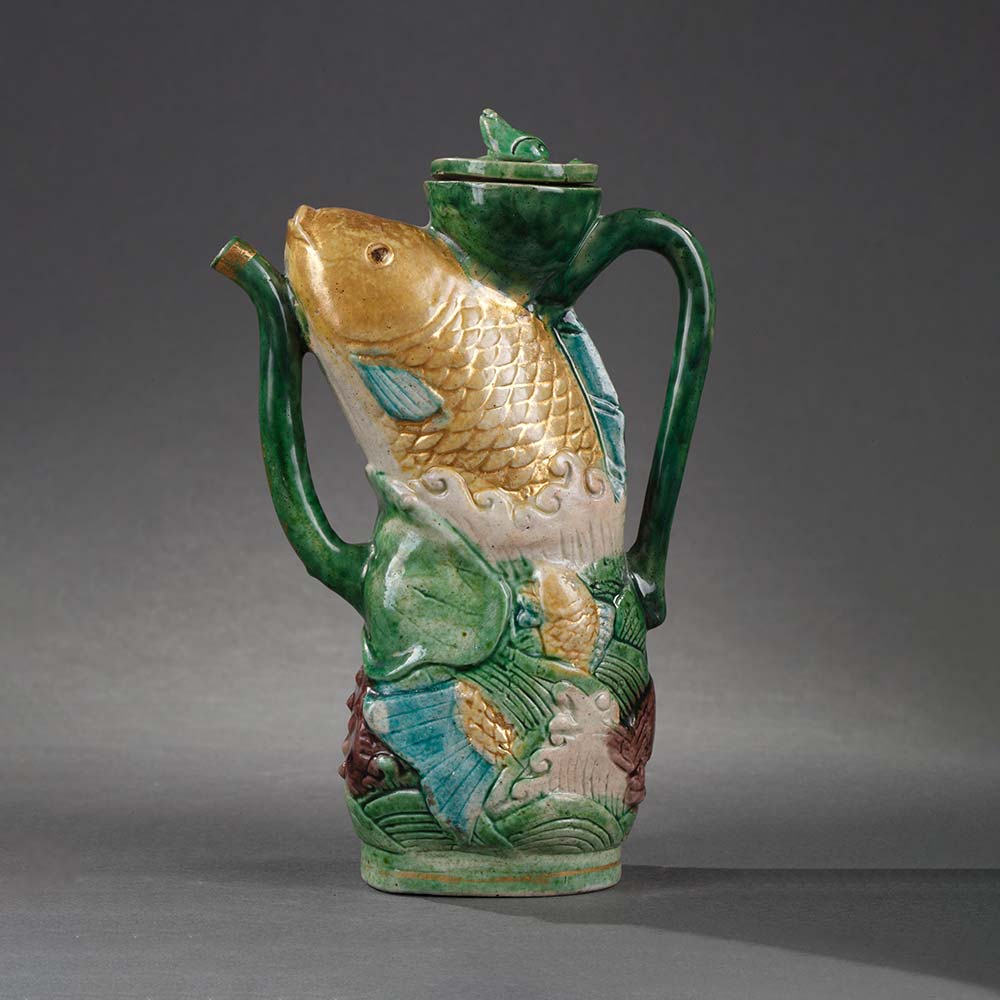
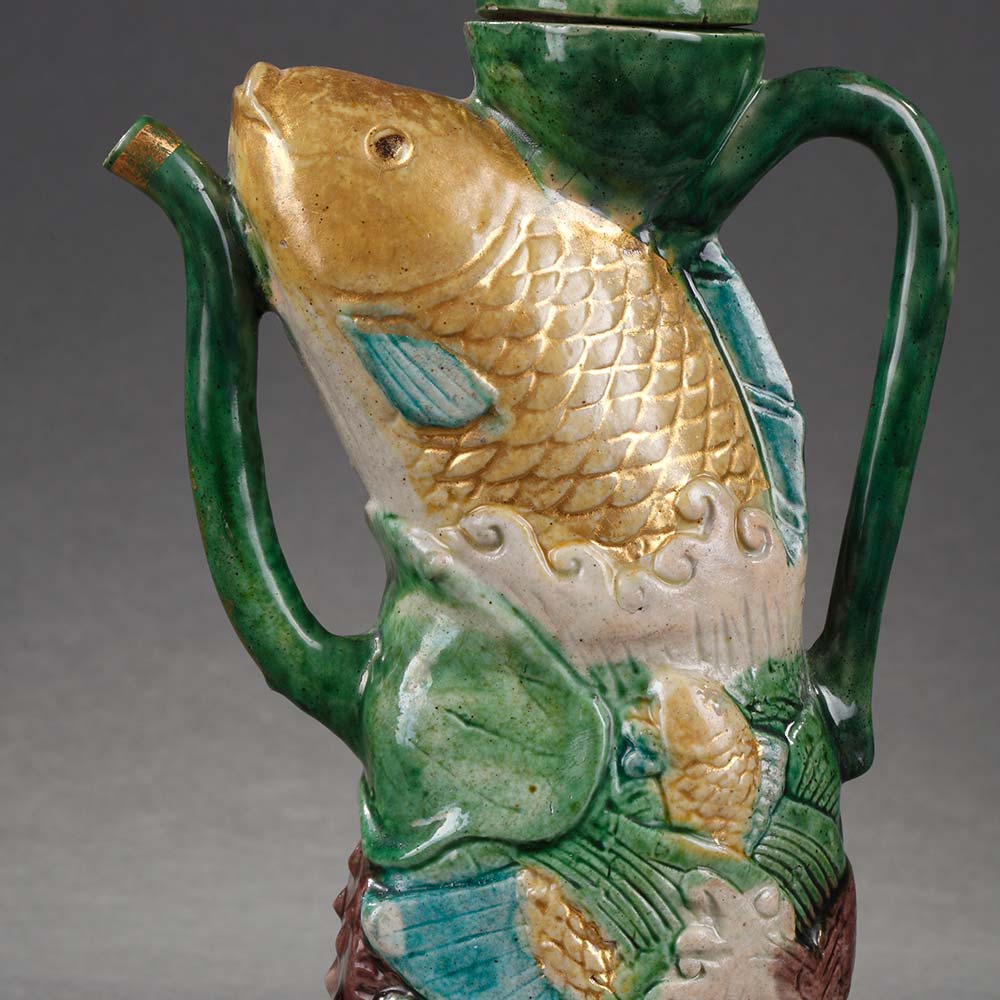
An ewer in the form of a carp decorated in enamels on the biscuit
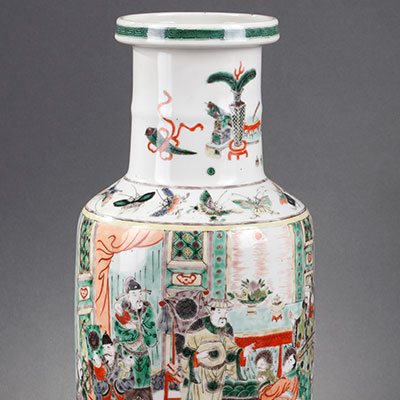
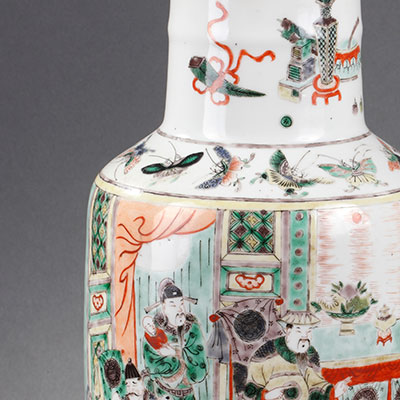
A famille verte « official scene » rouleau porcelain vase


A pair of small rouleau vases decorated with birds flying among flowers










